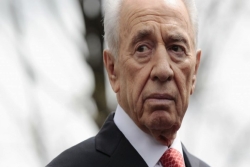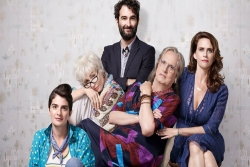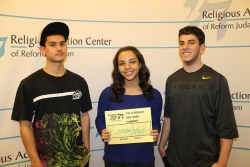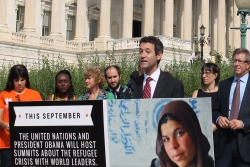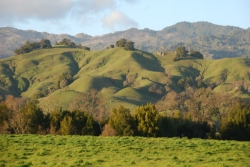Shimon Peres on the Futility of War
After the recent passing of Israeli President Shimon Peres, z"l, I'm remembering the time I sat down with him in a Manhattan midtown hotel in 1994 at the beginning of the Oslo process to discuss the peace process.
What Is It About Israel?
It was a straightforward question, spoken in a tone that was casual but knowing: “Did it change you?” he asked us.
Galilee Diary: Suburban Sprawl
On a recent perfect early spring day (warm sun, cooling breeze, brilliant wild flowers) we took the children and grandchildren on a short hike to the mountainside adjacent to Shorashim, picnicking under an olive tree. On the way, we encountered toads, lizards, a scorpion, and caterpillars; our lunch was serenaded by the muezzin of the village of Shaab, with the backup chorus of the jackals that live in the open areas.
How Not to Repent, as Taught by My Favorite TV Show
Season three of Transparent premieres September 23, and it couldn’t come at a more appropriate time: in the middle of Elul, the day before we begin reciting Selichot.
Stories That Make Us Excited About the Year Ahead
When we see our youth walking through the door after the summer, we are filled with pride. In 2015-2016 alone, more than 20,000 Reform youth, teens, and young adults across North America have built communities, engaged in meaningful dialogue about Israel, and paved the way in pursuit of social justice. Our collective work has spanned across North America, Israel, Nicaragua and Costa Rica, and beyond. But we know that there’s more to celebrate beyond the numbers. Our youth are asking core questions about themselves as they move through adolescence: who am I? With whom am I connected? How can I bring about change in the world?
New Census Data Shows Successes and Remaining Challenges in Fight Against Poverty
On Tuesday, the United States Census Bureau released their 2015 data, which offers encouraging signs in the battle against poverty in America.
The Torah In Haiku: Ki Teitzei
Defiant children?
Torah calls on the neighbors
To help reign them in
In Summits, Global Leaders Must Robustly Address Refugee Crisis
On Monday, the 71st United Nations General Assembly will meet in New York. Responding to the global refugee crisis will be a key item on their agenda.
How to Open Doors to Connect Seekers to Jewish Life
Anyone can open the door to Judaism for another, but will those standing at the door be intimidating shomrim (guards) or welcoming mezuzot (encased Torah texts on doorframes)?
For Creation
Like this prayer, Rosh HaShanah, the birthday of the world, celebrates creation and the Creator.
